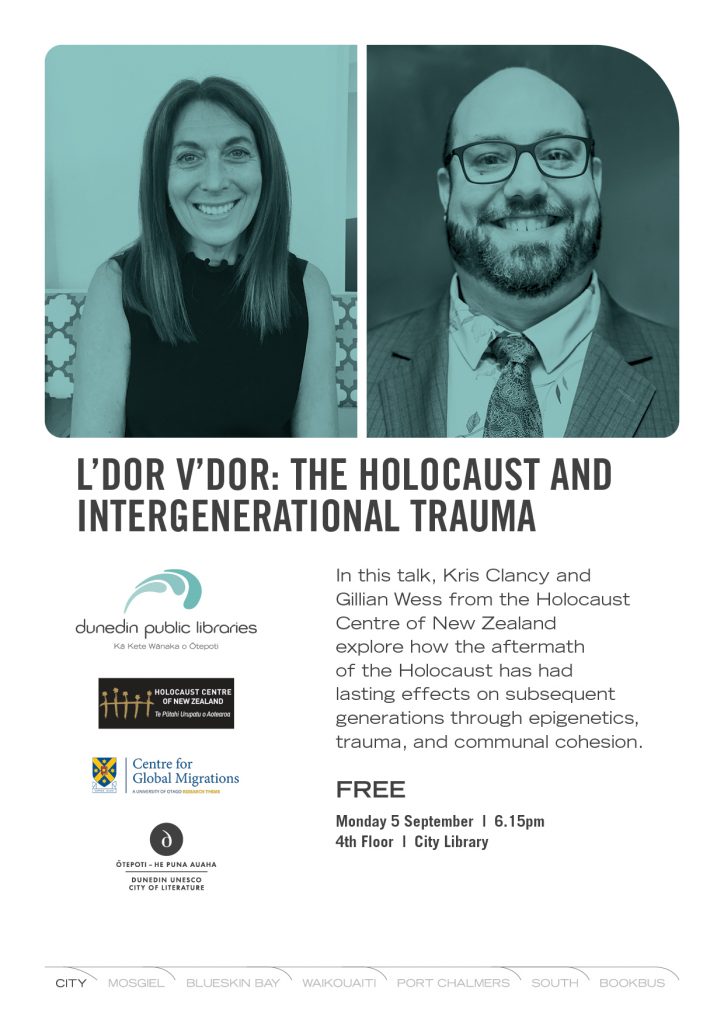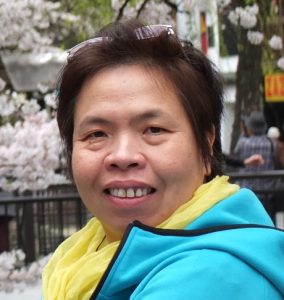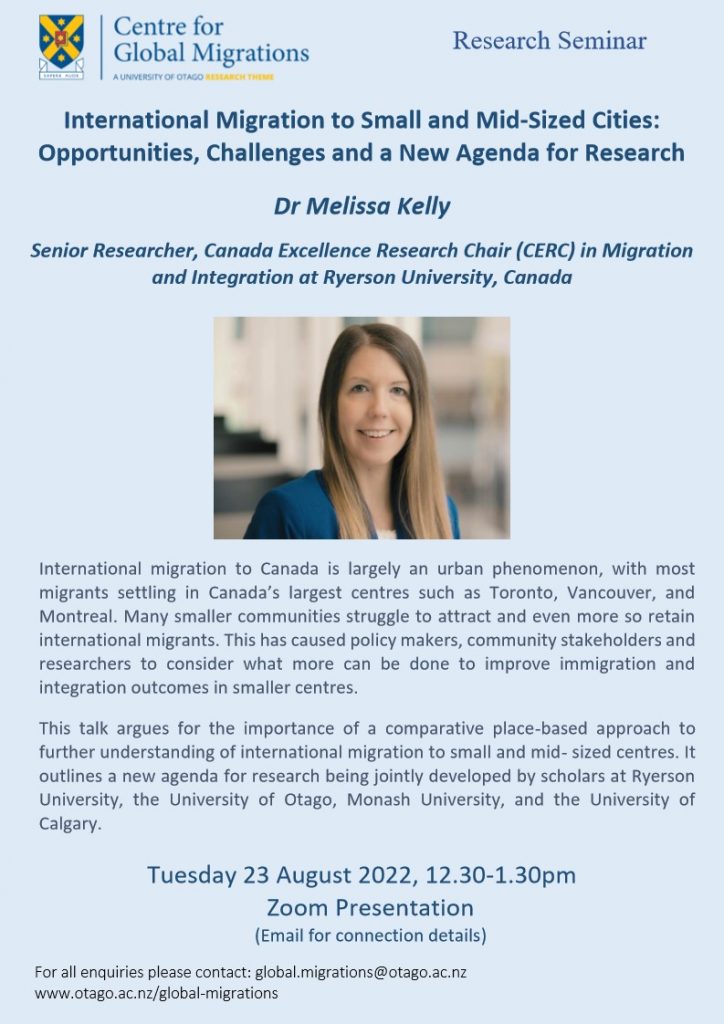Public Talk: L’Dor V’Dor: The Holocaust and Intergenerational Trauma
L’Dor V’Dor: The Holocaust and Intergenerational Trauma
KRIS CLANCY AND GILLIAN WESS
Holocaust Centre of New Zealand
Monday 5 September 2022, 6.15-7.30pm
Dunningham Suite, 4th Floor, Dunedin Public Library
After the Second World War, the world was shocked at the atrocities committed by the Nazis and the collaborators. Through the Nuremberg Trials, new standards in international law were established to prevent future genocides, but not all the perpetrators were caught. What happened to them? What challenges does this create in bringing other perpetrators of genocide to justice? Where was New Zealand placed among this?
Through looking at the immediate effects of the Nuremberg Trials and those Nazis that evaded prosecution, HCNZ will examine certain war criminals, from Nazis to modern day, who were able to escape prosecution and the role in which New Zealand played in bringing them to justice.
2022 Visiting Lecturer: Professor Ma. Reinaruth Carlos
We are delighted to announce that Professor Ma. Reinaruth Carlos from Ryukoku University in Japan will be our 2022 Visiting Lecturer. She will work with our member Dr Arlene Ozanne to develop collaborative research applications and publications.
During her time in Dunedin, Professor Carlos will give a public talk and a workshop.
Wednesday 7 September, 12-1pm: Public Talk on Nursing in Crisis: Philippine Nurse Migration during the COVID-19 Pandemic and its Implications for New Zealand
Wednesday 14 September, 12-2pm: Workshop on Migrant Communities in Japan and New Zealand during the COVID-19 Pandemic: Repercussions and Responses.
Online Seminar: International Migration to Small and Mid-Sized Cities
International Migration to Small and Mid-Sized Cities: Opportunities, Challenges and a New Agenda for Research
Dr Melissa Kelly
Senior Researcher, Canada Excellence Research Chair (CERC) in Migration and Integration at Ryerson University, Canada
Tuesday 23 August 2022, 12.30-1.30pm
International migration to Canada is largely an urban phenomenon, with most migrants settling in Canada’s largest centres such as Toronto, Vancouver, and Montreal. Many smaller communities struggle to attract and even more so retain international migrants. This has caused policy makers, community stakeholders and researchers to consider what more can be done to improve immigration and integration outcomes in smaller centres.
This talk argues for the importance of a comparative place-based approach to further understanding of international migration to small and mid- sized centres. It outlines a new agenda for research being jointly developed by scholars at Ryerson University, the University of Otago, Monash University, and the University of Calgary.




